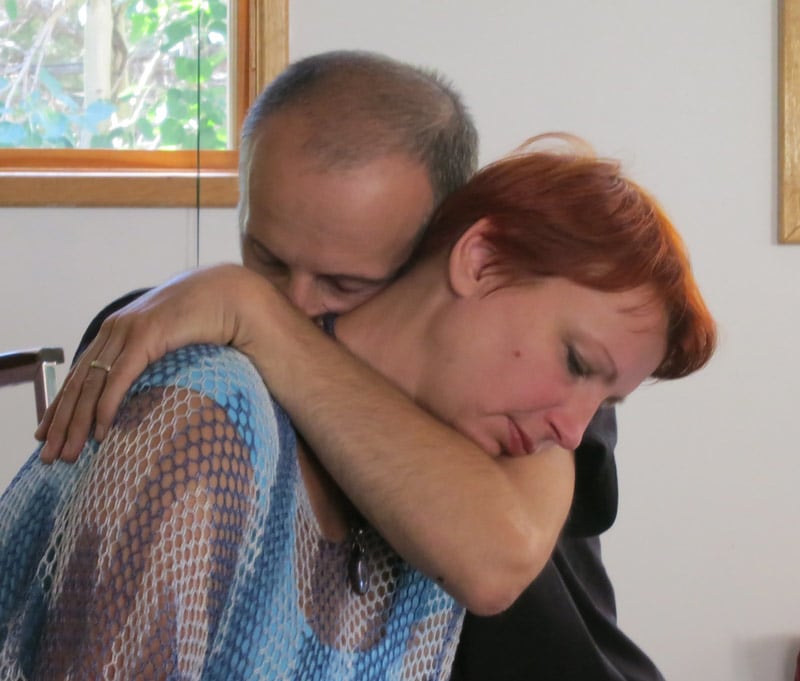

Systemic Therapy
is based on these starting points:
- no human is an isolated island and is part of interpersonal interactions,
- the system (family, community, couple..) as a whole is a different quality than just the sum of individuals,
- the system is made up of individuals and the relationships between them - so non-problematic individuals can create a problematic system,
according to the principles of cybernetics,
- a change in any member of the family system introduces changes in the entire system and requires changes in all members of the system.
In systemic therapy, we connect behaviors, relationships, and events: family/couple as a dynamic system that develops in the environment, with the environment, and in time
We place the family/couple in an appropriate life cycle in which specific reorganizations and adjustments are taking place according to expected and unexpected stressors and challenges.
In certain symptomatic behavior, we take into account the importance of context and other factors in the family/couple that maintain dysfunctional behaviors and transform them into healthy relationships.
Therapeutic meetings usually last 50 minutes and take place 1-2 times a month (more often if necessary especially at the beginning) and may involve a different number of family members. In partner therapy, both partners are involved in the therapy. Important changes can be achieved in a single-family therapy meeting, but usually, the therapy is completed after 6-20 meetings and can be repeated later if necessary.

Family Therapy
Do you feel like you live with friends, with people you love and trust, and who love you and trust you?
Do you rejoice and enjoy being a member of your family?
If you were able to answer all three questions with “yes,” I’m sure you live in a happy family. If you answered “no” or “not often,” you probably live in a family that is more or less disturbed. That doesn’t mean your family is bad. It just means that family members aren’t exactly the happiest, that they haven’t learned to openly love and appreciate each other. (Virginia Satir)
When and to whom is it intended?
Family therapy is helpful when you feel problems in your family that are difficult to solve on your own, or you don't understand them and you want professional help in coping with these problems:
- difficulties in communication between parents and children
- problems in raising children
- the kids don’t consider you
- emotional and behavioral problems of children, adolescents
- death, illness in the family
- you don’t know how to set boundaries in relation to your own or your partner’s primary family
- chronic illness or mental disorder of any of the family members
- domestic violence (including violent children)
- dependence on alcohol or other drugs in the family
- life changes in the family that are hard to deal with

Couples Therapy
In a partnership, difficulties often arise in finding compromises and decision-making, which leads to conflicts when there are difficulties in communication. The period when the partners have small children is especially sensitive to their relationship. Because of caring for children, partners then often find it harder to find contact with each other and conflicts can deepen. The departure of the children from home is also a test for the couple because it is then that the partnership is again at the forefront...
Couples therapy deals with the relationship between the partners, with their history, beliefs, attitudes towards their original family, since the experiences they gained in the family in which they grew up also have a significant impact on their lives later on.
When and to whom is it intended?
Couples therapy is helpful when you want to improve your relationship with your partner (better understand your relationship; look for ways to resolve conflicts differently than you are used to; strengthen trust between partners) because you are not happy with it or are thinking about the break up:
- they quarrel and no longer find common ground
- they find it difficult to find a compromise
- violence between you
- problems with alcohol / other drug abuse
- they became estranged from each other
- they have sexual problems
- they have small children and you run out of time for you or do not have coordinated views on parenting
- they are considering divorce
- they find it difficult to find contact with each other after the children leave home
- an intimate relationship with another person/fraud
How: systemic therapy ?
- Family therapy
- Couples therapy
The therapist offers the family a safe space in which to explore the 'river of family life' together. We discover the past and resources of the family, look for the strengths of the family and its members in the present, look to the future, and look for solutions. At the same time, the therapist helps to direct the flow of the river of life of the family and its members in a constructive direction. It helps them use their resources to find the best solution for themselves.
We invite all involved family members to the therapeutic meeting (as far as possible) or the one who has the most difficulty with family relationships. The number of members adapts to the needs, wishes, and content. The therapeutic meeting lasts 50 min. The frequency of meetings and the duration of therapeutic treatment are adjusted to the needs and goals of the family. The therapy is based on the principles of Nemetschek's systemic family therapy.For the first meeting, contact us to arrange a date and time for the meeting.
When partners find themselves in a vicious circle and are unable to solve problems on their own, the therapist helps identify and reshape patterns of behavior and beliefs that affect the relationship. It encourages and guides the partner to use their resources and experience and find the appropriate solution on their own.
Partners can learn to communicate, listen, and hear in therapeutic meetings in a safe environment. With the support of a therapist, they will also be given the opportunity to explore their relationship, reconcile their expectations, relationship with friends, leisure, boundaries with previous family, common rules, and reconnect or break up constructively.
Both partners come to the therapeutic meeting (if possible) or the one whose relationship weighs the most on them. The therapeutic meeting lasts 50 min. We adjust the frequency of meetings and the duration of therapeutic treatment to the needs and goals of the partners.
We agree on the form of treatment after the introductory interview according to the type of your problems and the goals you want to achieve. The introductory interview is intended to acquaint you with your problems and to acquaint you with the way we work. Therapy is based on the principles of systemic therapy.
For the first meeting, contact us to arrange a date and time for the meeting.